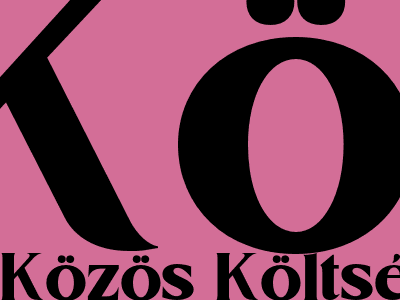Közös Költség Angolul
Meaning of Közös Költség
Közös Költség is a Hungarian term that refers to common costs or service charges associated with the maintenance and operation of a residential or commercial property. It is typically used in the context of apartment buildings or condominium complexes, where multiple owners share common areas and facilities.
Common Costs Covered by Közös Költség
Közös Költség typically covers a range of expenses related to the upkeep of the property, including:
- Building maintenance and repairs
- Common area cleaning and landscaping
- Utilities such as water, electricity, and gas
- Insurance premiums
- Property management fees
- Reserve fund contributions for future maintenance projects
Responsibilities of Owners
In most cases, owners of individual units or apartments are responsible for paying their share of Közös Költség. The amount of each owner's contribution is usually determined based on the size or value of their unit.
Importance of Közös Költség
Közös Költség plays a crucial role in maintaining the value and liveability of a property. Regular payment of these charges ensures that common areas and facilities are well-maintained, and that the building remains in good condition.
Consequences of Non-Payment
Failure to pay Közös Költség can result in legal action against the defaulting owner. Additionally, unpaid charges may become a lien against the property, which can affect its saleability.
Conclusion
Közös Költség is an essential aspect of property ownership in Hungary. It covers the costs of maintaining and operating common areas and facilities, and ensures the upkeep of the property. Owners are responsible for paying their share of Közös Költség, and regular payment is crucial for preserving the value and liveability of the property.

Komentar